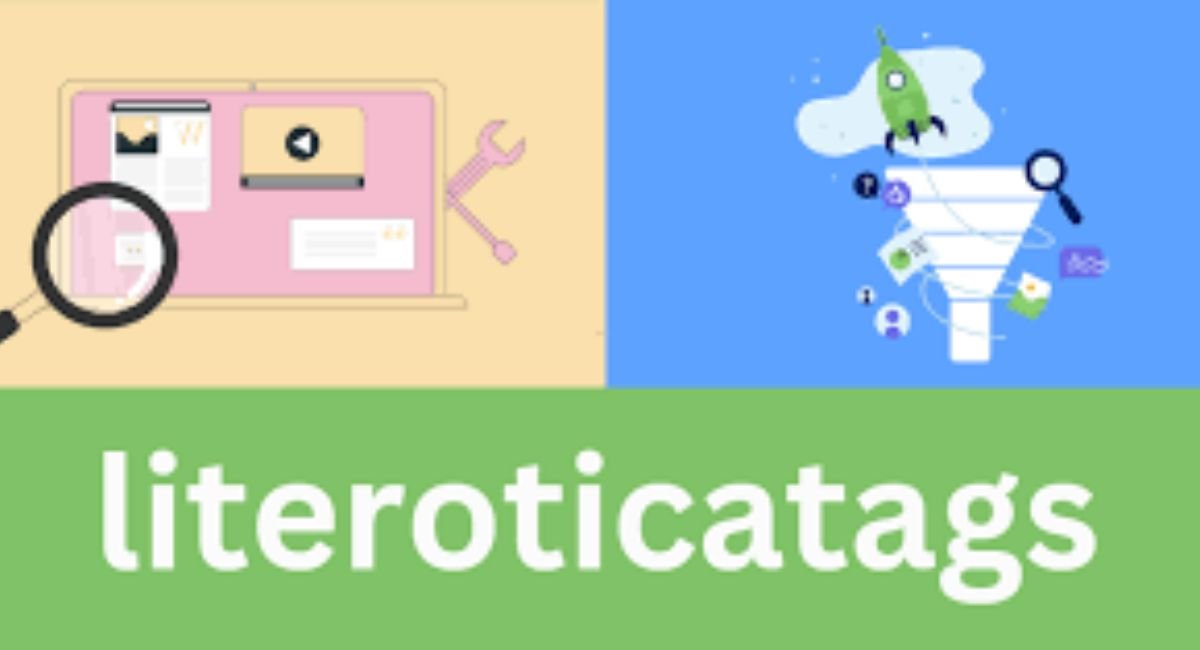Literoticatags: Enhancing Erotic Fiction Through Detailed Tagging

Introduction to Literoticatags
Welcome to the tantalizing world of literoticatags, where every story becomes a treasure trove of desires waiting to be explored. In the realm of erotic fiction, tagging plays a crucial role in guiding readers toward narratives that ignite their passions and fantasies. These tags serve as signposts, helping enthusiasts navigate through an array of stories crafted with intimacy and allure.
Whether you’re diving into steamy romances or adventurous encounters, understanding literoticatags can elevate your reading experience significantly. They allow authors to connect with their audience on a deeper level while giving readers the power to find exactly what they crave. Join me as we delve into how these detailed tags enhance erotic fiction and transform storytelling into an immersive journey.
The Importance of Tagging in Erotic Fiction
Tagging plays a crucial role in the realm of erotic fiction. It allows authors to categorize their work effectively, making it easier for readers to find stories that suit their tastes.
In a genre where personal preferences can vary widely, precise tags act as a guiding light. They help convey key themes and elements present in the narrative, saving time and enhancing satisfaction.
Moreover, well-chosen tags create an immediate connection between reader and story. A tag like “BDSM” or “romantic suspense” instantly signals what kind of experience awaits within those pages.
For writers, tagging is equally important; it increases discoverability on platforms dedicated to erotic literature. The right tags can significantly boost visibility and attract enthusiastic audiences eager for specific content.
By embracing tagging’s full potential, both authors and readers unlock deeper engagement with the material they love most.
Types of Tags and What They Mean
Tags in erotic fiction serve as signposts, guiding readers through a vast landscape of themes and styles. Each tag carries specific meanings that enhance the reading experience.
Character tags focus on traits or roles. Whether it’s “alpha male” or “submissive female,” these descriptors highlight dynamics between characters.
Setting tags offer context, transporting readers to exotic locales like “beach getaway” or “haunted mansion.” They set the mood and backdrop for unfolding stories.
Content-related tags warn about explicit elements. Tags like ” BDSM” or “age gap” signal what to expect, helping readers choose narratives that resonate with their preferences.
Genre tags can shape expectations too. A story tagged as “romantic fantasy” will feel different than one labeled simply “erotic.”
Understanding these types enriches both writing and reading experiences, making literoticatags an invaluable tool in navigating erotic literature.
How to Use Literoticatags Effectively
To use literoticatags effectively, start by identifying the core themes of your story. Focus on the emotions and experiences that drive your narrative. This clarity helps you choose tags that resonate with potential readers.
Be specific in your tagging choices. Instead of broad terms like “romance,” consider using tags that reflect niche interests such as “BDSM,” “age gap,” or “paranormal.” This specificity not only attracts targeted audiences but also enriches their reading journey.
Don’t overload your work with too many tags. A well-curated selection enhances discoverability without overwhelming readers. Aim for a balance between popular and unique tags to broaden reach while maintaining authenticity.
Keep an eye on trends within the literotica community. Adapting to shifts ensures you’re connecting with current reader preferences, making your stories more appealing right from the start.
Examples of Popular Literoticatags and Their Impact on Readers
Literoticatags play a pivotal role in guiding readers toward their desired content. For instance, tags like “BDSM” and “kink” attract those curious about alternative lifestyles. They create a space where exploration is both accepted and celebrated.
On the other hand, tags such as “romantic” or “sweet” cater to readers seeking softer narratives that emphasize emotional connections alongside physical intimacy. These distinctions allow authors to reach audiences who may have varied tastes.
Moreover, niche tags like “paranormal romance” spark interest among fans of fantasy genres blended with erotic elements. This combination opens doors for creativity and imaginative storytelling.
The impact of these tags goes beyond categorization; they foster community and connection among readers who share similar interests. When readers find stories that resonate with them through effective tagging, it enhances their overall experience and engagement with the material.
The Future of Tagging in Erotic Fiction
The landscape of erotic fiction is evolving rapidly. As more readers seek personalized experiences, tagging will become increasingly sophisticated.
Emerging technologies like AI could refine how tags are generated and categorized. Imagine a system that learns from reader preferences, suggesting tags based on individual tastes.
Interactive elements may also enter the scene. Readers could engage with stories through customizable tags; they can select themes or scenarios that resonate most with them.
Community-driven platforms might rise in importance as well. Writers and readers alike could collaborate to define new categories, ensuring fresh content remains relevant and exciting.
As we look ahead, the potential for literoticatags seems boundless. The ability to enhance storytelling while catering to diverse desires holds tremendous promise for both creators and audiences alike.
Conclusion: Why Literoticatags are Essential for Enhancing the Reading Experience
Literoticatags play a crucial role in shaping the experience of readers engaging with erotic fiction. They serve as signposts, guiding readers through the vast landscape of stories and ensuring they find content that resonates with their interests. With well-defined tags, authors can attract their target audience more effectively.
The use of literoticatags enhances discoverability, allowing niche genres and themes to shine. Readers benefit from clearer expectations about what each story entails, minimizing the risk of disappointment when exploring new works. This transparency fosters a deeper connection between authors and readers, nurturing a community where preferences are acknowledged and celebrated.
As tagging systems evolve alongside technology, we can anticipate even greater enhancements in how erotic literature is categorized and consumed. The potential for personalized recommendations based on reader behavior offers an exciting glimpse into the future.
Embracing literoticatags not only enriches individual reading experiences but also elevates the entire genre of erotic fiction. By utilizing these detailed tags thoughtfully, both writers and audiences can create a vibrant ecosystem that thrives on clarity and creativity.

